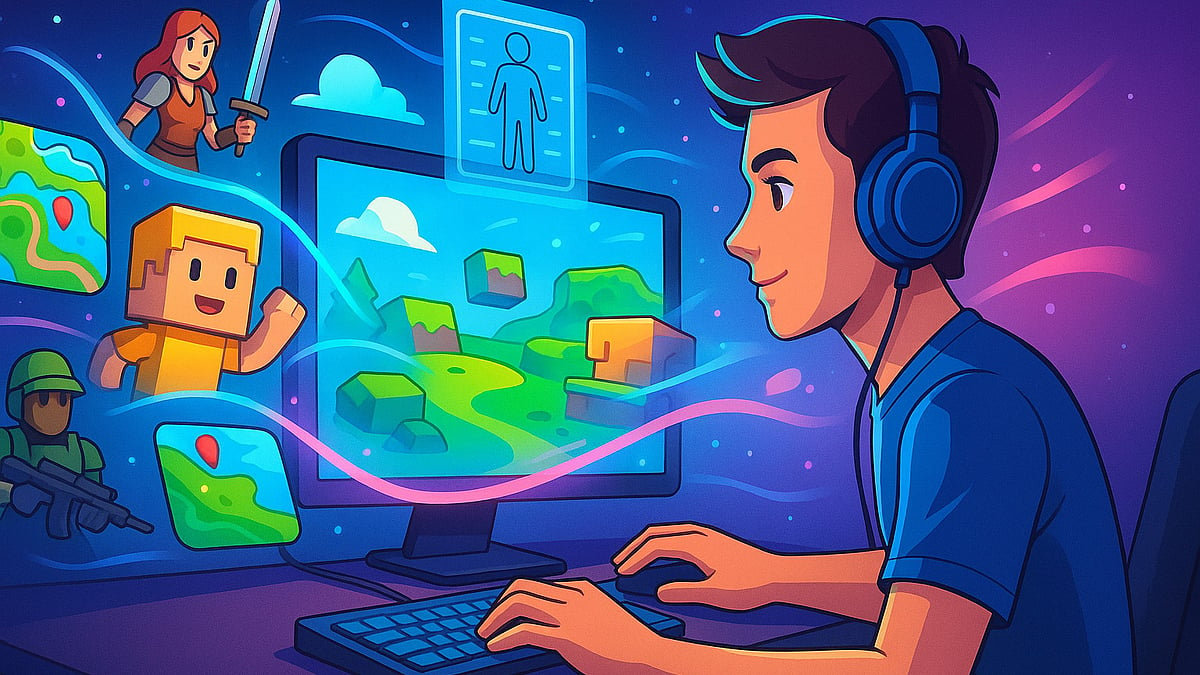Bodrum Escapes: Your Guide to Luxury and Leisure
Explore the best of Bodrum with exclusive insights and tips for an unforgettable experience.
Crafting Worlds: The Unbelievable Impact of User-Generated Gaming Markets
Discover how user-generated gaming markets reshape our virtual worlds and transform the gaming experience. Dive in now!
How User-Generated Content is Shaping the Future of Gaming
User-generated content (UGC) is revolutionizing the gaming industry by fostering a sense of community while simultaneously driving engagement. Players are no longer just passive consumers; they have transformed into active contributors, creating mods, skins, levels, and entire games within existing platforms. This shift has led to phenomenal growth in user participation, with platforms like Roblox and Fortnite capitalizing on this trend. As developers recognize the value of UGC, they increasingly incorporate tools that allow gamers to showcase their creativity, leading to a rich tapestry of gaming experiences that enhance overall gameplay.
Moreover, the impact of user-generated content extends beyond just player engagement; it serves as an essential marketing and retention tool. Gamers often share their creations on social media and streaming platforms, generating organic buzz and attracting new players. As a result, game developers are encouraged to adopt community-driven approaches by highlighting UGC in promotions, competitions, and updates. This evolving landscape ensures that UGC will not only shape the present of gaming but also define its future, ultimately creating a vibrant ecosystem where gamers feel a deep connection to both the games they love and the community they build around them.

Counter-Strike is a popular first-person shooter game known for its tactical gameplay and team-based strategies. Players can engage in various game modes, with the main objective often revolving around completing missions or eliminating the opposing team. For those looking to enhance their gaming experience, you can check out the daddyskins promo code to get some exciting in-game items.
The Economics of User-Generated Gaming Markets: How Players Become Creators
The emergence of user-generated gaming markets has transformed the way players engage with their favorite titles. In these dynamic ecosystems, gamers are not just consumers but become creators as well, designing levels, skins, and entire game mods. This shift has significant economic implications, as it fosters a culture of collaboration and innovation. By leveraging platforms like Steam Workshop and Roblox, individuals can monetize their creations, contributing to a new economy where creativity directly translates to income. Moreover, the growing popularity of eSports has created lucrative opportunities for amateur game developers to showcase their work, attracting sponsorships and audience engagement that were previously unheard of in traditional gaming.
Furthermore, the rise of player-generated content challenges conventional copyright laws and revenue models. As players become creators, questions arise about ownership and profit-sharing in user-generated gaming markets. For instance, platforms that allow players to sell their content must navigate complex legal landscapes, balancing the rights of original game developers with those of the community. This evolving structure not only underscores the value of user-generated content in the gaming industry but also highlights the need for clear policies that support both creators and franchises. Ultimately, the economics of these markets is reshaping not only how games are made but also how players interact with and profit from their passion.
Exploring the Benefits and Challenges of User-Generated Content in Gaming
User-generated content (UGC) has become a pivotal element in the gaming industry, offering numerous benefits for both developers and players. One of the primary advantages is the enhanced community engagement that arises when players share their creations, such as mods, fan art, and gameplay videos. This active participation fosters a vibrant gaming community, encouraging collaboration and creativity. Additionally, UGC often extends the longevity of games, as fresh content keeps the player base engaged and interested. Many games, like Minecraft and Fortnite, thrive on the creativity of their users, leading to increased sales and a continually expanding fan base.
However, the integration of user-generated content also brings forth several challenges that developers must navigate. For instance, ensuring the quality and appropriateness of UGC can be demanding, as poor or offensive content can tarnish a game's reputation. Moreover, intellectual property concerns arise when players create content that may inadvertently infringe on copyrights or trademarks. Game developers must strike a careful balance between encouraging creativity and implementing necessary safeguards to protect both their brand and their players. Addressing these challenges is crucial for harnessing the full potential of UGC while maintaining a supportive and healthy gaming environment.